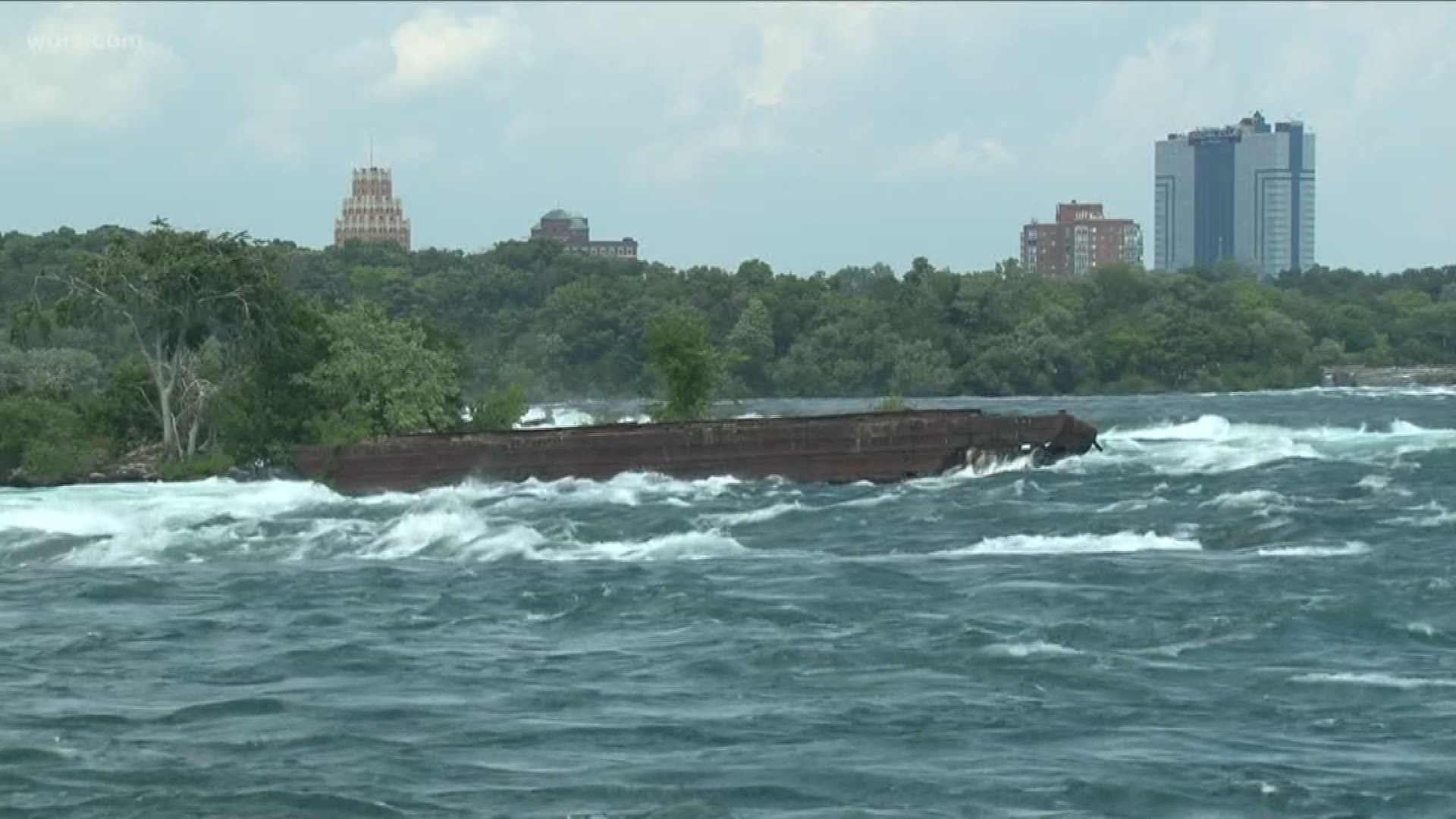NIAGARA FALLS, ON - Just across the border from Western New York in Ontario, August 6 is a provincial holiday, which means plenty of tourists visiting Niagara Falls. A short walk beyond the crest of the Horseshoe Falls, the rusted hull of a ship rests against a small copse of trees.
For the visitors walking the nearby riverside trail, it's a sight that can be hard to process.
When asked if she had any idea of why it was there, Emily Bao offered a confused reply. "Um, no idea," was all she could say. Krista Greedwood and Simon Wardley were visiting from just south of London, England, and could manage even fewer words. "Nope," they added in unison.
A nearby plaque details the story of how the barge came to rest in the Niagara River, carrying two men from Buffalo in an event that happened one hundred years from Monday, Jim Hill, Senior Manager of Heritage with the Niagara Parks Commission explains.
"When the scow broke loose from it's tug, it grounded on the rocks right there," he detailed. "They had to figure out how to get these guys off of this, and no one was going out there in a boat of any kind. So they got on top of the power plant. They fired the rescue line over there and then they rigged up the rescue line. The problem is the lines got tangled."
He continued, "So a local guy just back from World War I, William 'Red' Hill Sr., with a hundred other guys standing around, volunteered to go out and untangle the lines. 'Red' Hill Sr. went out again, a second time, successfully untangled the lines and they rescued both of the gentlemen and brought them up to the roof of the power plant - but [the boat has] been stuck there since August 6th, 1918."
Monday night, a ceremony on the Canadian side commemorated the centennial anniversary of one of Niagara Falls most harrowing rescues, updating the plaque and honoring "Red" Hill's present day family. The craft itself continues to sleep in the rapid current of the coursing river, inspiring many different emotions.
"It made me think about where people try to cross," Krista said, "and if there would be enough desperation to use this space to try and cross because of how dangerous it is."
Emily looked at it from a much different angle. "Nationality doesn't really matter. It's about people's lives and when people's lives are in danger, I guess our first instinct is to help save them even though it puts our lives in danger too," she added. "That's very moving to me."
"There are a lot of common bonds and friendship with people on both sides here," Jim offered, "and this is just one great example of that cooperation from a hundred years ago."

